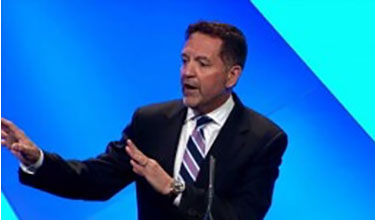Justice Ginsburg Pens a Moving Tribute to Justice Scalia
The intensity of the political noise caused by the passing of Justice Antonin Scalia reminds us of the Spinal Tap amplifiers turned up to “11”. Painful to the ears. But amid that noise is the outpouring of respect and admiration from a host of people representing all bands of the political spectrum. To us no tribute to Scalia was as noteworthy as that paid to him by his SCOTUS colleague and ideological adversary, Justice Ruth Bader Ginsburg.
In any debate, bringing light, not heat requires a willingness to listen to and respect the views of those who one might vehemently disagree with. In a relationship similar to but even deeper than that of Ronald Reagan and Tip O’Neil Justices Ginsburg and Scalia not only respected and listened to each other but they were able to build a strong friendship that both clearly treasured. In this 2016 election year, they serve as a reminder that we can expect better not only from our leaders but also from ourselves in how we go about debating issues both public and personal.




